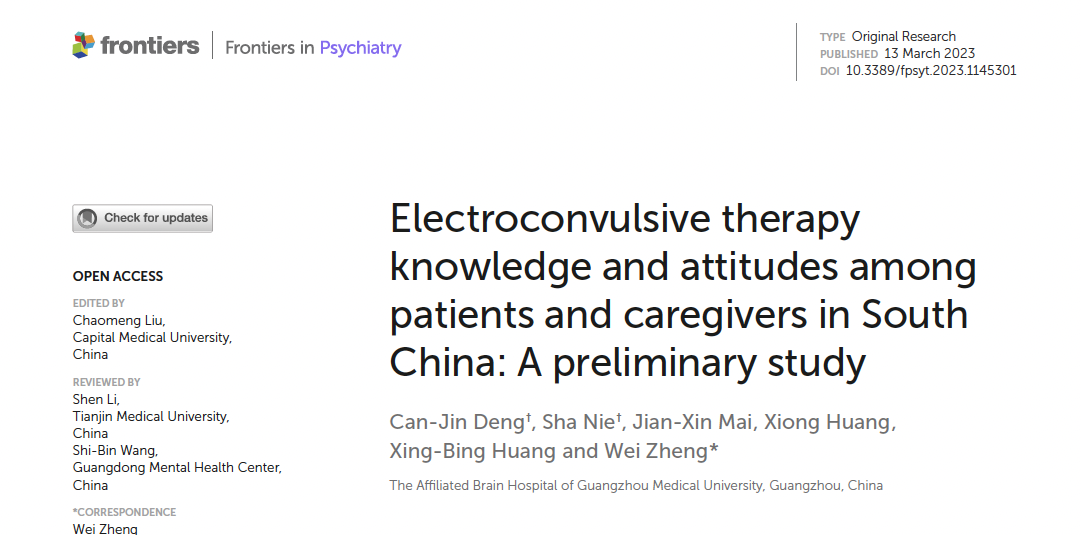ECT Knowledge and Attitudes: New Survey From South China
Out on PubMed, from investigators in China, is this study:
Electroconvulsive therapy knowledge and attitudes among patients and caregivers in South China: A preliminary study.
Front Psychiatry. 2023 Mar 13;14:1145301. doi: 10.3389/fpsyt.2023.1145301. eCollection 2023.
PMID: 36993925
PMID: 36993925
The abstract is copied below:
Background: Electroconvulsive therapy (ECT) is a safe and effective therapy for individuals suffering from major psychiatric disorders, but attitudes towards ECT among patients and caregivers have not been well studied. This study was conducted to elucidate patient and caregiver knowledge and attitudes concerning ECT in South China.
Methods: The sample comprised 92 patients diagnosed with major psychiatric disorders and their caregivers (n = 92). Participants completed questionnaire measures of knowledge and attitudes related to ECT.
Results: Information before ECT was inadequately provided to both caregivers and patients (55.4% versus 37.0%, p < 0.05). Caregivers reported receiving more adequate information about the therapeutic effects (50.0% versus 44.6%), side effects (67.4% versus 41.3%), and risks (55.4% versus 20.7%) of ECT when compared to patients (all p < 0.05). However, less than half of patients and caregivers believed that ECT was effective (43.5% versus 46.7%, p > 0.05), while more than half of them believed that ECT was beneficial (53.3% versus 71.7%, p < 0.05), and approximately half of them believed that ECT was safe (50.0% versus 51.1%, p > 0.05). A total of 32.6% of patients and 55.4% of caregivers (p < 0.05) reported that ECT was used only for critically ill patients. A total of 62.0% of patients experienced side effects, with memory impairment being the most commonly reported.
Conclusion: Clinicians should develop a systematic health education program before ECT treatment and ensure that patients and caregivers have an accurate understanding of ECT, particularly the treatment process, its therapeutic effects and potential side effects prior to administering this treatment.
Keywords: attitudes; caregivers; electroconvulsive therapy; knowledge; major psychiatric disorders.
The article is here.
And from the text:
This is an interesting contribution to the ECT-knowledge-and-attitudes literature. Since we know little about the conduct of ECT in China, our comments are limited. We do know that a "vast" number of patients get ECT in China; the mean age in this particular sample is very young (28 years old). As the authors note, there is much room for improvement in patient and caregiver education.







Comments
Post a Comment